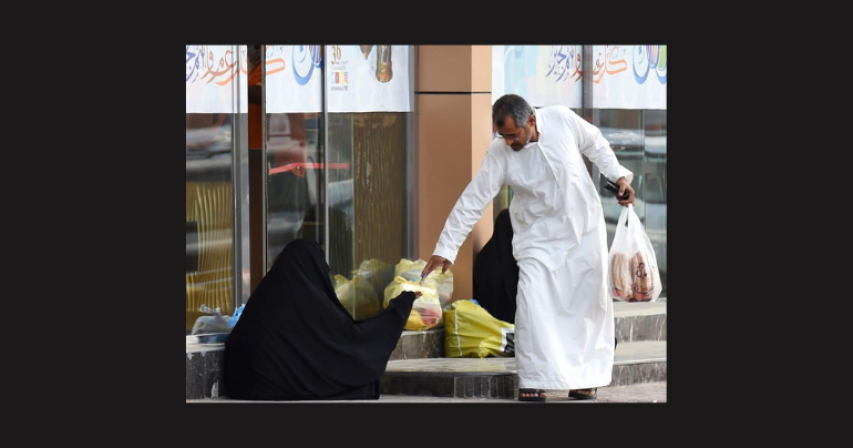Begging in the UAE: Unveiling the Hidden Reality

The act of begging, often seen as a desperate plea for help from the destitute, takes on a different dimension in the United Arab Emirates (UAE). Recent reports shed light on a startling reality: some beggars are not as impoverished as they appear. In fact, they may be richer than those they solicit. This revelation comes as the Dubai Police apprehended two women, each in possession of substantial sums of cash—amounting to Dh60,000 and Dh30,000, respectively—that they acquired solely through begging.
These women, arriving in the UAE on visit visas, exploited sympathetic sentiments by using tactics such as employing children to elicit greater charity. However, their cases are not isolated incidents; they reflect a broader trend. The Dubai Police assert that a staggering 99 per cent of the beggars they detain consider begging not as a means of last resort but as a lucrative "profession."
Authorities have also uncovered the existence of what they term "salaried" beggars—individuals brought into the country expressly to beg, often receiving monthly wages for their efforts. The Sharjah Police previously revealed this practice, shedding light on a complex network that capitalizes on human desperation for financial gain.
Over the past four years, Dubai Police have arrested 1,701 beggars, with nearly 500 detained in 2023 alone—a testament to the escalating scale of the issue. Many beggars are reportedly flown into the UAE on visit visas with the explicit purpose of soliciting alms on the streets. Notably, a family of five, comprising two brothers, their spouses, and a child, was apprehended near a mosque in Dubai engaged in begging.
Moreover, beggars employ various tactics to elicit sympathy and generosity, including fabricating stories and leveraging social media platforms to disseminate false narratives about tragedies and humanitarian crises. These schemes often include soliciting donations through fraudulent means, such as providing bank account numbers or links to fake donation pages.
The consequences for engaging in begging are severe under UAE law. Offenders face fines of up to Dh5,000 and imprisonment for three months. Those involved in organizing beggar gangs or recruiting individuals from abroad to solicit alms face even harsher penalties, including six months of imprisonment and a Dh100,000 fine. Furthermore, fundraising without proper authorization can result in fines reaching up to Dh500,000.
As the holy month of Ramadan approaches, the police are intensifying their efforts to combat begging, urging residents to remain vigilant and report suspicious activities. Mosques, markets, and other crowded areas are common targets for beggars, who employ both traditional and modern tactics to elicit donations.
In light of these developments, residents are reminded to exercise caution and discernment when approached by individuals seeking alms. While genuine cases of need undoubtedly exist, the prevalence of organized begging networks underscores the importance of vigilance and adherence to legal protocols in charitable giving.
By: Sahiba Suri





Comments